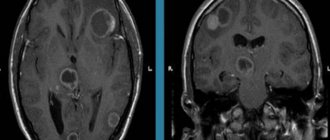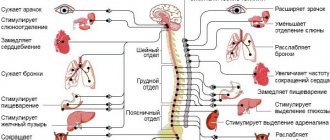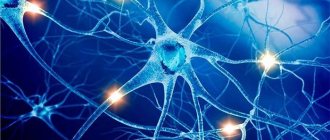For some, constant changes in emotional state are the norm. But from a scientific point of view, an unnatural change in physical and mental state means so-called lability. Under the influence of external or internal factors, the nervous system may react too aggressively to circumstances. In its advanced form, this is fraught with irritability and disruptions of the mental system.
In everyday life, such reactions are often classified as natural processes. But even attacks of aggression, for example, when touching hot objects or when pain occurs, are considered emotional lability. Lability is a negative quality of a person if it occurs too aggressively and uncontrollably.
What characterizes intellectual instability?
Unlike emotional lability, its intellectual subtype can be very useful in a person’s everyday life. For example, intellectual lability is characterized by the ability to quickly switch attention and instantly respond to surrounding circumstances. Also, a person with similar phenomena has the ability to quickly learn new skills and abilities. It is easier for them to learn and be in conditions that are not natural for them.
The higher a person’s intellectual lability, the more successful he is in life. His reaction is heightened, he can be trained, explores new opportunities, and is able to succumb to feelings of envy, motivating himself with this. And those who do not have the described type of lability are more susceptible to anger, a feeling of fatigue, irritability, and nervous disorders.
Therefore, passivity and stability of the intellect are a negative quality for a person.
Vegetative lability - what is it?
The autonomic system is an autonomous part of the nervous system, responsible for the control and regulation of the functioning of internal organs. It is she who regulates such processes in our body as breathing, heartbeat, digestion, sweating, body temperature, muscle tension, etc.
Important!
Under the mask of VSD, other serious diseases may be hidden, especially those related to the endocrine system. Only a doctor can make an accurate diagnosis and prescribe the correct treatment! All information on the site is for informational purposes only and is not a reason for self-diagnosis or self-medication.
The autonomic nervous system (ANS) works independently, without any human intervention. We simply could not live without her. Just imagine if, in order to live, people needed to consciously control their pulse, give commands to their intestines to digest food, constantly monitor their breathing rhythm, and influence their temperature. There would simply be no time left for other things. But nature is brilliant and our body has perfect systems.
The ANS consists of two divisions - sympathetic and parasympathetic.
The sympathetic autonomic region is activated in stressful situations. He is responsible for our survival and preservation. When danger signals are received from the outside (through the organs of vision and hearing) to the brain, the sympathetic department instantly prepares the body for the “fight or flight” state. After all, if a person is really threatened by something, then there are only two ways to save his life - to run away or defeat the enemy in battle. At this moment, the sympathetic department turns off the work of some organs (stomach, bladder) so that they do not interfere, and mobilizes other systems. Muscles tense, breathing quickens, pulse rises, blood pressure rises, blood rushes to the head.
The parasympathetic department is responsible for relaxation. This part of the system regulates the digestion process, the functioning of the endocrine system, the removal of fluid from the body, lowering blood pressure, and reducing muscle tone. When in a calm and relaxed state, the sympathetic department also rests, and the parasympathetic department is actively working.
With a healthy psyche and a strong nervous system, the vegetative system functions smoothly. Sympathy comes into play only when a person is truly in danger.
Autonomic lability is the instability of two parts of the ANS, a failure in their work. With increased lability syndrome, people experience inadequate reactions of the body to very minor external factors and even to their own thoughts. A person with high blood pressure may experience increased blood pressure, increased heart rate, and heavy sweating from minor stress, received information, or negatively colored images in the head.
An increase in the tone of the parasympathetic nervous system is accompanied by a decrease in the strength and frequency of heart contractions and a slowdown in the speed of excitation through the myocardium. a decrease in blood pressure, an increase in insulin secretion and a decrease in the concentration of glucose in the blood, an increase in the secretory and motor activity of the gastrointestinal tract.
From the medical encyclopedia
In simple words, the unfortunate person’s body begins to behave as if there is a nuclear war around, when in fact there is no real danger. And such disruptions in the nervous system can occur many times during the day. A patient with a functional disorder of the nervous system is usually diagnosed with “vegetative-vascular dystonia” or “neurocirculatory dystonia”. Labile vegetation in itself is not an independent disease. The violation is caused by other factors and becomes only their consequence. Symptoms of VSD can appear suddenly or develop slowly and are hardly noticeable at first.
So, we found out what vegetative lability is. Now let's look at the reasons.
The neurotransmitter norepinephrine is involved in the regulation of nervous activity. Thanks to its work, the motor system is activated in a stressful or shock situation, and mental activity increases sharply. Since it is responsible for the work of the sympathetic department, norepinephrine regulates blood pressure levels, narrows the lumens of blood vessels, increases blood volume, and strengthens the work of the heart muscles. Unlike adrenaline, this mediator does not affect the functioning of smooth muscles, but is much more capable of constricting blood vessels.
Emotional instability
But emotional lability is a negative manifestation of any pathology or abnormality.
In particular, a state of emotional instability can be caused by:
— Age-related dementia;
— Schizophrenia;
— Consequences of traumatic brain injuries;
— Neoplasm of the brain;
— Strokes, heart attacks;
- Atherosclerosis.
According to numerous expert opinions, this type of lability is a consequence of a depleted nervous system. And if aggression or emotional instability occurs, you should consult a doctor.
Forecasts
In the absence of treatment against the background of vegetative lability, the following may develop:
- cardiovascular diseases: tachycardia, hypertension, heart failure, atherosclerosis, thrombus formation;
- gastritis, ulcer;
- serious mental disorders;
- diseases of the respiratory system: shortness of breath, rapid breathing, attacks of lack of air;
- pancreatitis;
- sexual dysfunction;
- weakened immunity;
- dermatitis, etc.
You need to understand that all the symptoms of developing vegetative lability are superficial and easily removable. But complications after an advanced disease are already difficult to treat.
Autonomic instability
There is another type of negative lability. This is a disturbed vegetative system. This includes the factor of control over body movements, stability of the musculoskeletal system and all key organs. If you feel dizzy, lose control of yourself, notice tremors in your limbs or numbness, then you are likely to develop autonomic lability. The disorder is also manifested by erectile dysfunction, vaginal dryness, tachycardia and impaired sleep stability.
With all these manifestations, you should also consult a specialist.
Symptoms of autonomic lability
The autonomic nervous system controls almost all processes in the body. Its failure leads to very diverse and numerous symptoms. Much depends on the level of general health of a person and his psychological characteristics.
Most common symptoms:
- Headaches, migraines, dizziness.
- General weakness, fatigue, malaise.
- Increased sweating.
- Tremor of the limbs.
- Chills or, conversely, a flush of heat.
- Intolerance to heat, stuffiness, cold.
- Tachycardia, angina pectoris.
- Disturbances in the gastrointestinal tract (pain, cramps, flatulence, diarrhea, constipation).
- Frequent urination (sometimes accompanied by cramps).
- Visual disturbances (cloudness, blurriness, double vision, sensitivity to light).
- Increase or decrease in blood pressure.
- Body pain of unknown nature.
- Numbness of different parts of the body (usually arms or legs).
- Weakness, “wooliness” in the legs.
- Impaired coordination of movements.
- Muscle twitching, tension.
- Dyspnea.
- Sleep disorders.
- Chronic subfebrile body temperature (+37-37.5), or, conversely, low (+36-36.2).
- Dry skin.
- Sudden mood swings, tearfulness, irritability, apathy, depression.
- Meteor dependence.
These methods for panic attacks are useless!
Mental instability
Mental lability is manifested by an unstable emotional state. Such people can suddenly change their mood, become overly impressed, and try to shift responsibility to others. In advanced stages, depression, split personality, and aggression can develop. Therefore, this type of mental instability should be treated by psychiatrists, not psychotherapists.
In the modern world, the described types of unstable human condition appear in young, middle, and adulthood. The cause of deviations can be both hereditary factors and the person’s lifestyle.
We also recommend reading the article about disgust.
Reasons for the development of the disease
The disease can appear suddenly or develop gradually, but the person simply does not pay attention to the “alarm bells”.
It is provoked by stress factors and adverse effects of the external environment.
They weaken the body, leading it to physical and mental exhaustion.
The development of the disease can be provoked by infectious diseases, various intoxications, operations, injuries, especially craniocerebral injuries, changes in time zones, and climate. In women, this often occurs during pregnancy or menopause.
The roots of the disease can also be hidden in early childhood and be associated with psychological trauma.
Traditional methods
Traditional medicine is actively used for the treatment and prevention of vegetative lability.
Tea made from herbal tea has restorative properties. Contains 30 g of St. John's wort, 20 g of peppermint, 15 g of lemon balm. The ingredients must be combined. To brew, pour 2 tablespoons of the raw material into a glass of boiling water. You need to insist for half an hour. In the morning and evening you need to eat 1 glass of the drink.
A tincture containing lemon, eggshells, and vodka has a beneficial effect on nervous activity. 10 lemons, the shells of 5 eggs must be finely chopped, pour in 500 ml of vodka. It takes about 2 days to apply the product. You need to drink the medicine three times a day, 2 tablespoons.
A preparation made from thyme, motherwort, and oregano will help normalize the psychological state. 2 tablespoons of the herbal mixture should be poured into 500 ml of boiling water and left for more than 3 hours. You need to take the tincture three times a day, one spoon.
Herbal baths have a calming, strengthening and restorative effect.
The following types of medicinal plants are used for their preparation:
- Motherwort;
- Cones, pine needles;
- Valerian;
- Lavender;
- Black currant.
Before taking healing water procedures, you must take a shower and cleanse your skin. After bathing, do not rinse your body with plain water.
Baths with sea salt will help relieve tension. The components contained in salt help activate metabolic processes, restore the balance of microelements and vitamins, and strengthen the vegetative system.
Drugs for the treatment of disorders
Drug treatment of autonomic lability is aimed at normalizing the function of organs and systems, relieving tension in the autonomic nervous system.
They use medications to normalize sleep, safe sedatives, painkillers, and vitamin therapy. For severe disorders, anti-anxiety medications will be prescribed for a short time:
- Phenazepam, due to its relaxing effect on the central nervous system, is effective for insomnia and seizures. Its use has a positive effect on any autonomic disorders, helps cope with irritability, and reduce the severity of neurasthenia.
- Tenoten, this homeopathic medicine has several effects on the body. It calms, helps normalize the psycho-emotional background, stimulates memory, concentration, and does not cause drowsiness. It is used for chronic prolonged stress and nervous disorders.
- Phenibut has a positive effect on memory, stimulates brain activity, and improves brain nutrition. It is used for decreased performance, memory loss, and sleep disorders. Gives a positive effect in the treatment of anxiety and neurotic conditions.
- Afobazole, its use is not addictive. It helps overcome fear, insomnia, timidity, and irritability. It is prescribed to treat various anxiety conditions.
- Corvalol is a favorite medicine for heart patients with tachycardia and heart pain; it will help with neuroses and insomnia. It is good to use for the treatment of hypochondriacal syndrome and autonomic disorders.
- Glycine. These small tablets with a pleasant taste should be placed under the tongue in case of stress or severe mental tension, and sucked well before bed for insomnia and neuroses. The drug normalizes vegetative-vascular disorders and helps reduce psycho-emotional stress.
- Adaptol, this tranquilizer does not cause drowsiness, helps relieve anxiety and irritability. Its use gives a good effect in the treatment of various autonomic disorders that occur against the background of hormonal changes.
- Atarax is not an antidepressant, but due to its sedative effect it helps reduce anxiety.
The basis of the disease is a disruption of the autonomic system.
Ignoring symptoms leads to serious psycho-physical complications.
In advanced forms, it is possible to develop pathologies of systems and organs - ischemia, hypertension, various types of gastritis, peptic ulcer. Various anxiety states lead to mental disorders.
Recommended preventative methods
You can prevent disruptions in the functioning of the autonomic nervous system by following simple recommendations.
- Lifestyle. Changes should be made to the daily work schedule. Spend more time in the fresh air, alternate rest with work, it is advisable to avoid stress, give up bad habits.
It is advisable to distance yourself from the influence of negative emotions and tune in to the positive. Communicate more with people, attend cultural events.
- Proper nutrition. It is recommended to follow a diet. Eat more easily digestible, healthy foods: vegetables, fruits, dietary meat, dairy products, seafood, lettuce, spinach, nuts, grains, vegetable oils.
It is advisable to avoid eating baked goods, sweets, fatty and fried foods, soda, chewing gum, and strong tea or coffee. You can drink green tea and pure still water.
- Physical activity. Exercising helps saturate the body with air, strengthen the cardiovascular system, and increase immunity. Any sport is suitable for this: swimming, aerobics, running, cycling, race walking, dancing.
- Massage, acupuncture, swimming, yoga, contrast shower, relaxing bath, aromatherapy, bath are effective.
- Healthy sleep. During a night's rest, all the body's functional abilities, vitality and energy are restored.
Doctor: Olga Shishkina ✓ Article checked by doctor
Treatment tactics
When choosing treatment tactics, the emphasis is on non-drug methods aimed at normalizing the functioning of the nervous system.
For this purpose, they recommend a gentle regime of work with proper rest, sleep, and it is necessary to pay attention to proper nutrition. Avoiding stress, frequent walks, and moderate physical activity play a big role in recovery. It is recommended to drink, instead of tea and water, infusions of herbs - mint, lemon balm or valerian.
In addition to a regular doctor, such patients are advised to receive help from a psychologist or psychotherapist.
Regular sessions will help identify the cause of the disease and change your attitude towards it. A psychologist will help you develop skills to combat stress and teach relaxation techniques to reduce or relieve vegetative symptoms that develop due to internal tension.
Symptoms of emotional lability
Manifestations of emotional lability in adults are different:
- Impulsiveness;
- Lack of self-control;
- Taking rash actions without taking into account possible negative consequences.
Psychologists distinguish between two types of emotional lability: borderline and impulsive. The first type is characterized by the following manifestations:
- Vigorous, developed imagination;
- Mobility of cognitive perception;
- Excessive impressionability;
- Affective lability;
- A painful perception of the obstacles encountered on the way to achieving goals;
- A painful perception of failures, mistakes, and one’s own failures.
- Stress due to an exaggerated perception of what is happening.
The borderline type of emotional instability is formed during the development of the child. At this age, desires prevail over the rules and prohibitions that are established in society, the child’s environment and in a particular family. Teenagers with this type of emotional lability are characterized by restlessness. Their mood is constantly changing, which can lead to frustration and inattention.
People with a borderline type of emotional instability have a weakness for the trials that meet them on the path of life; they often become drunkards, start taking drugs, and break the law. In rare cases, they may develop depression or hysteria. People with borderline emotional lability can become attached to another person in a short time. They are not independent. Their behavior can be characterized by conflicts with others, unreasonable jealousy, and suicidal blackmail.
People with an impulsive type of emotional lability are overly excitable. They are greatly influenced by irritating factors. Such individuals believe that everyone around them is against them. Children with an impulsive type of emotional lability are characterized by the following qualities:
- Touchiness;
- Moodiness;
- Hysterics;
- Manifestations of verbal and physical aggression.
If a person fails to take a leadership position, he shows anger towards others, withdraws into himself, often commits public, demonstrative affective acts, and gets angry. During a fit of rage, a person can cause physical and mental harm to others. Those around you do not understand and do not accept this behavior and are isolated from a person with an impulsive type of emotional lability. This situation is only getting worse. The personality becomes cruel, does not want and cannot make concessions. It is extremely difficult to build a dialogue with such a person.
Clinical and laboratory diagnostics
This disease can be diagnosed only after an examination to exclude organic pathology in physiological manifestations and mental illness in neuropsychological disorders.
Once the examination is completed, autonomic disorders are considered.
Often their manifestation is noticeable even when interviewing the patient, a superficial examination - this is dilation or constriction of the pupils, dry skin or excessive sweating, possible pallor or, conversely, sharp hyperemia of the skin.
The tone of the autonomic system is judged by reflexes. Somato-vegetative, skin and sweat reflexes are often examined.
To study the function of the nervous system, biochemical tests of blood and urine along with a number of instrumental studies began to be used. This allows you to assess the degree of disturbance and the severity of autonomic dysfunction.











